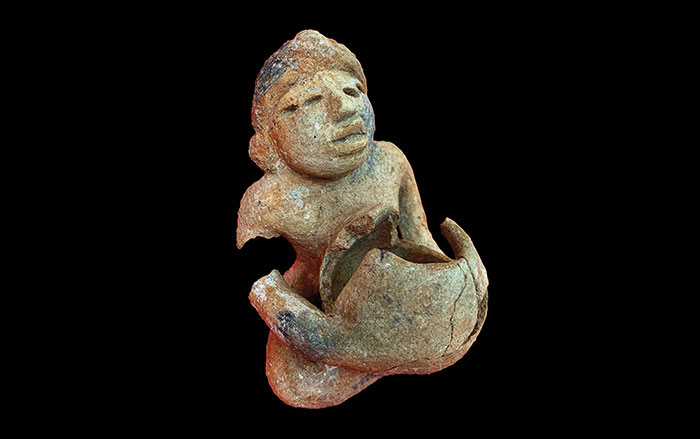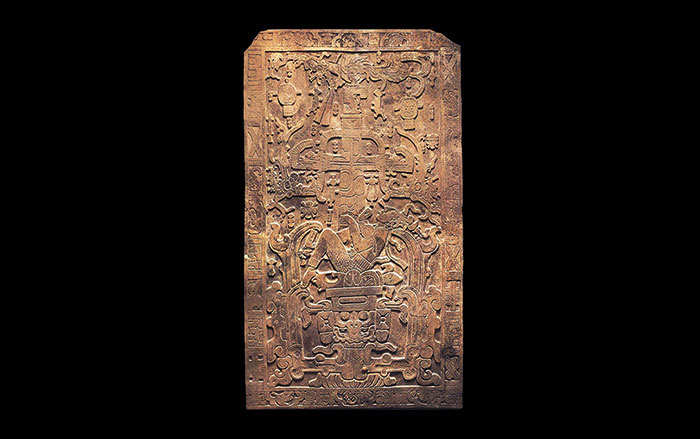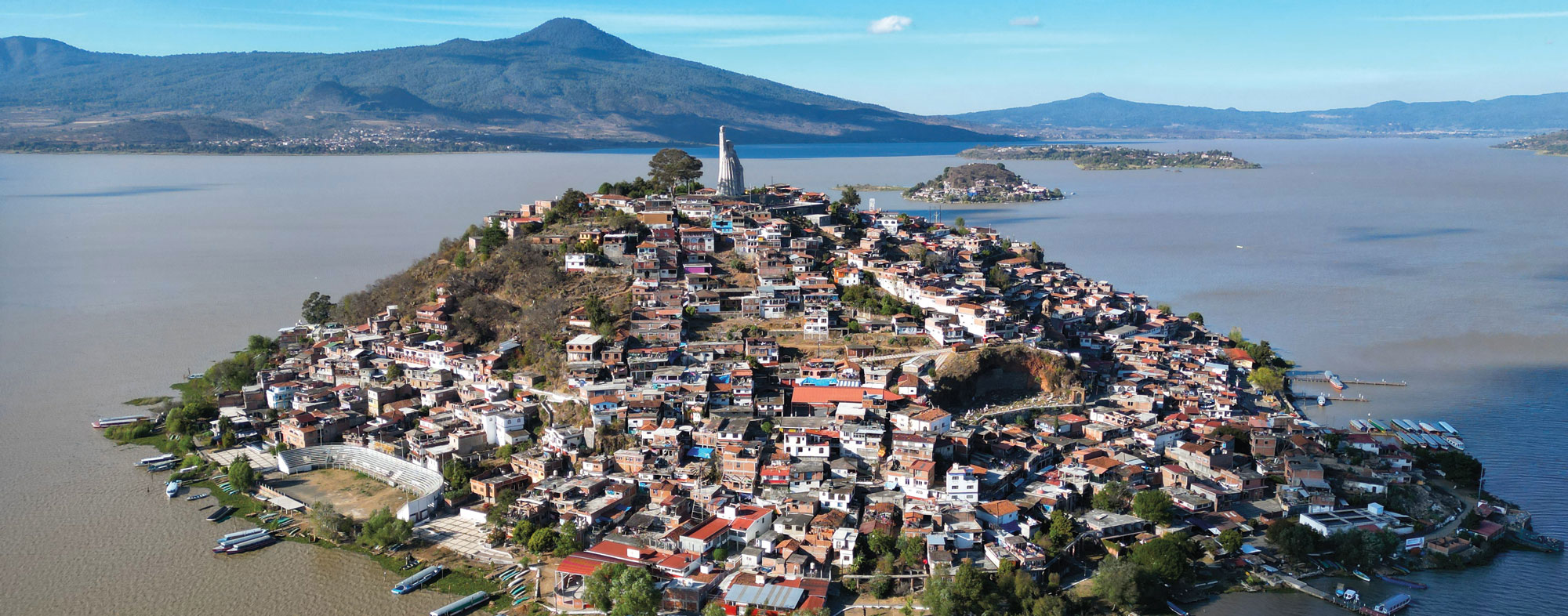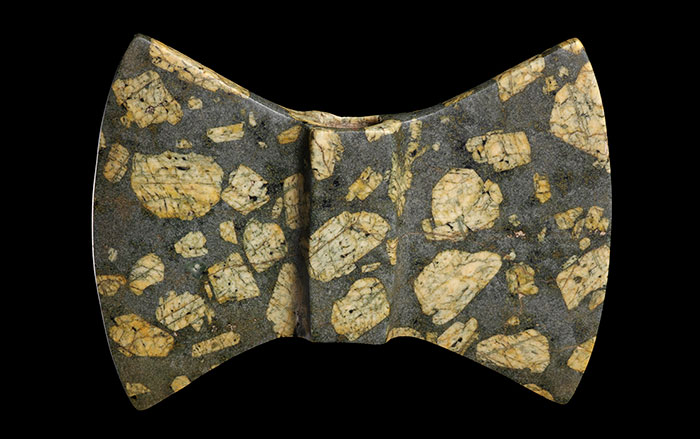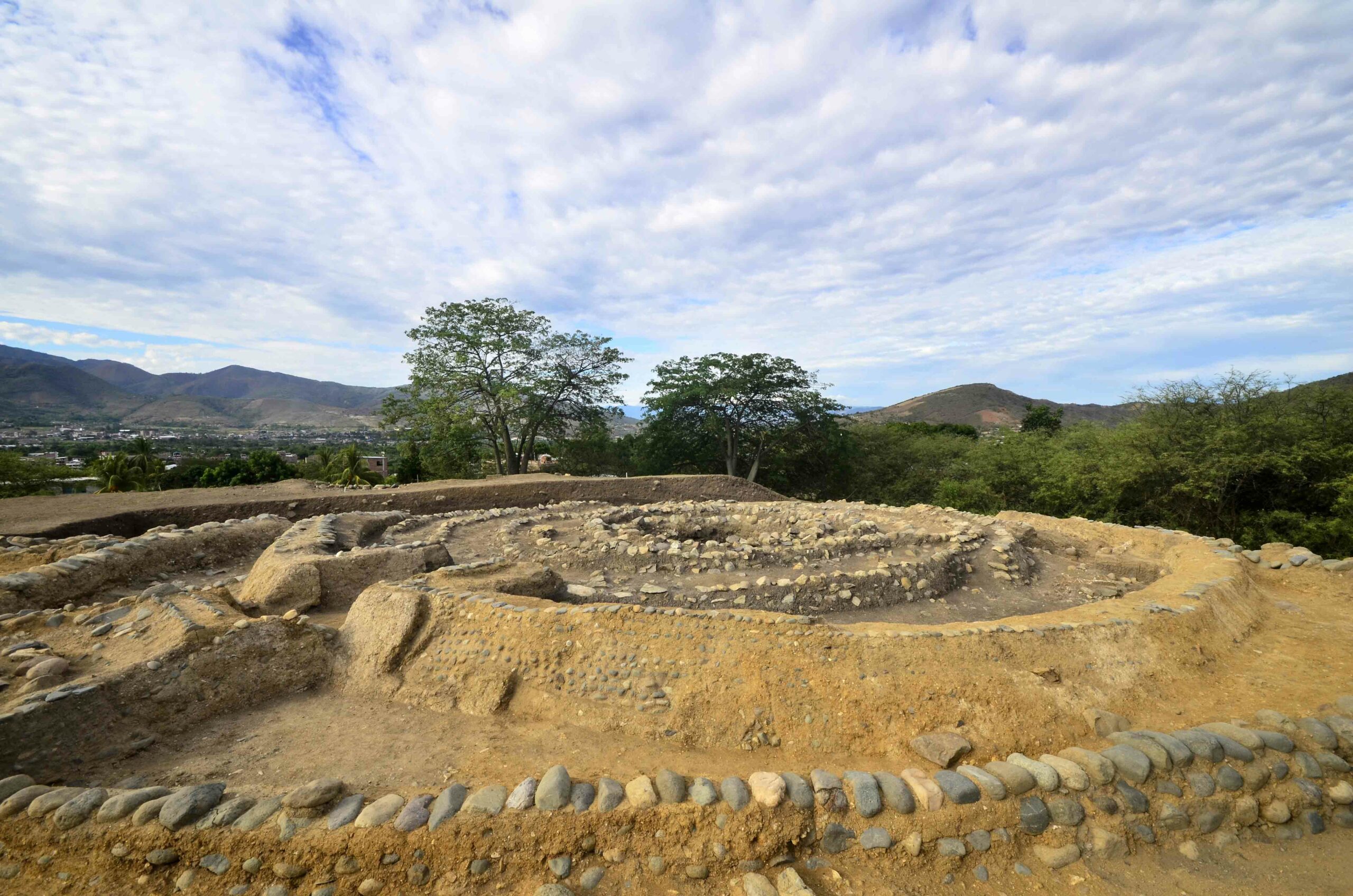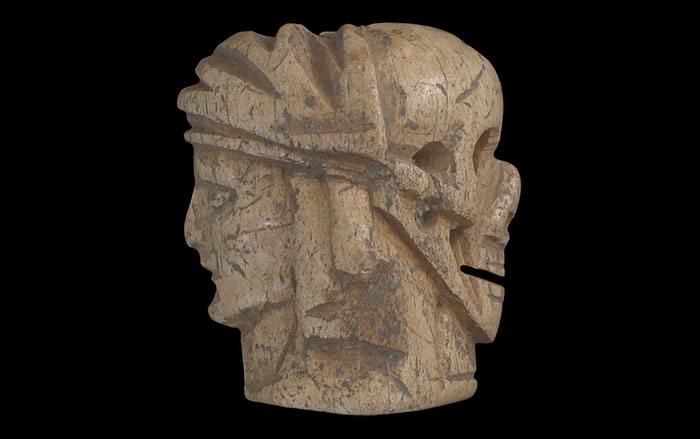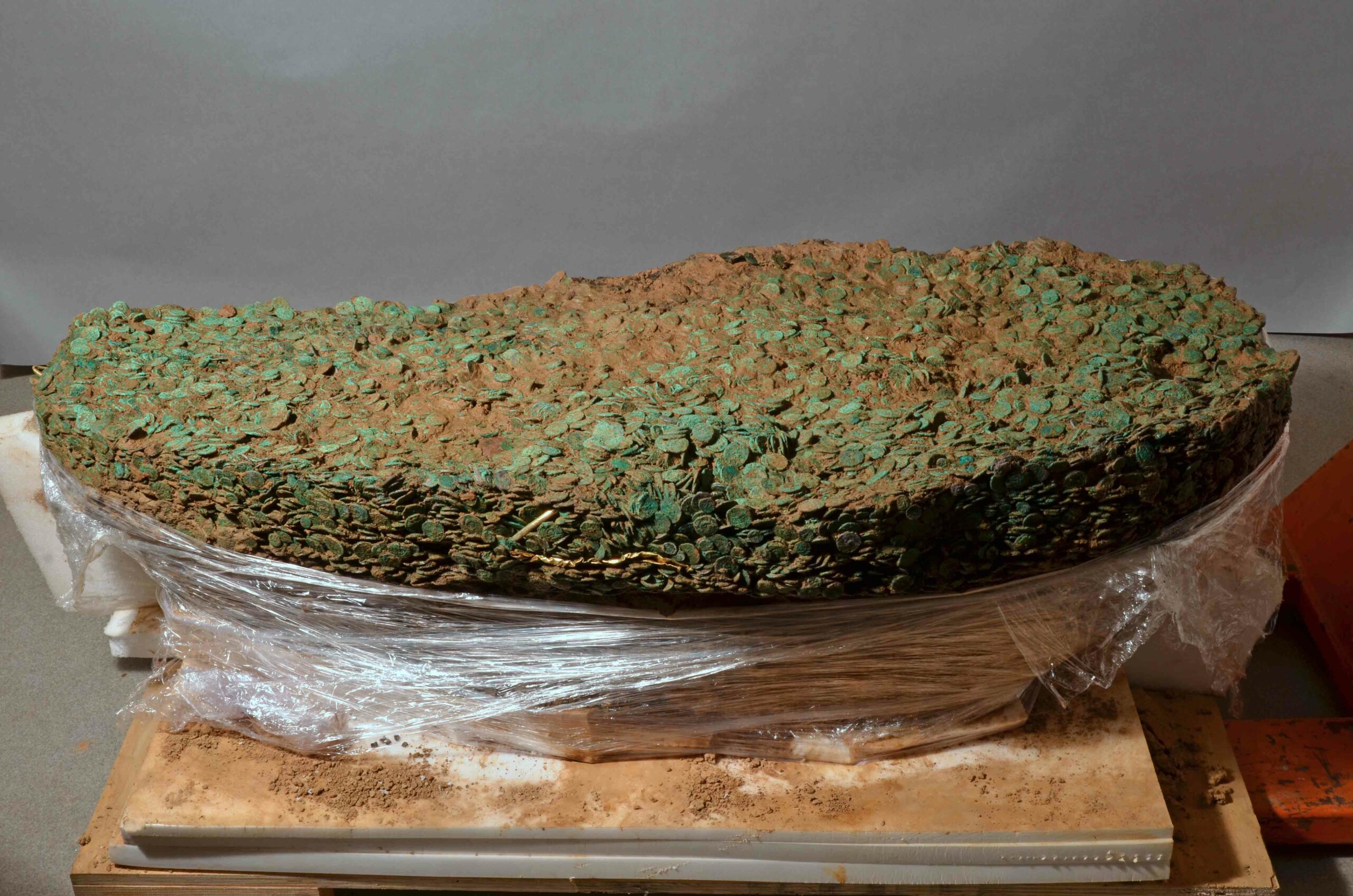
HEIDELBERG, GERMANY—Nature News reports that human remains recovered from Mexico’s Chan Hol Cave are at least 11,300 years old, and could be more than 13,000 years old. A nearly complete skull and other human bones were discovered by divers in the underwater cave in 2012, but by the time scientists visited the cave a few weeks later, only fragments of bone remained on the cave floor, including a piece of pelvic bone covered by a stalagmite. Wolfgang Stinnesbeck of the University of Heidelberg dated the calcite surrounding the recovered piece of pelvic bone by analyzing its levels of uranium and thorium isotopes. Calcite two centimeters away from the bone was determined to be 11,300 years old. The rate at which the calcite formed suggests the skeleton had been on the cave floor for more than 13,000 years. The condition of the bone fragments has made it impossible to recover DNA samples from them, but Stinnesbeck is hopeful that the few teeth not removed by the thieves will produce usable genetic material. To read about the discovery of another ancient skeleton in a cave in Mexico, go to “Naia—the 13,000-Year-Old Native American.”


